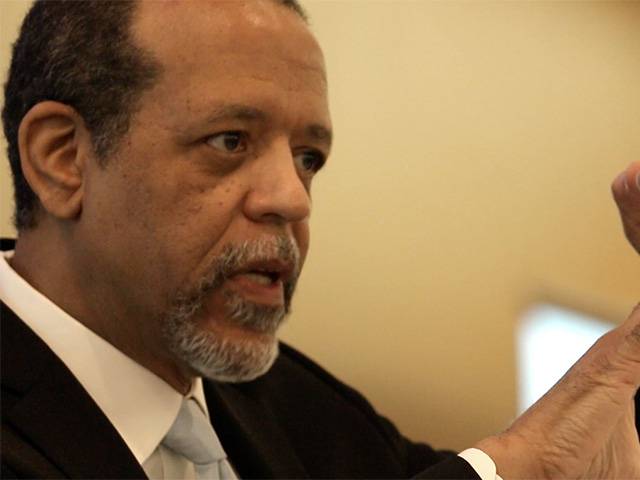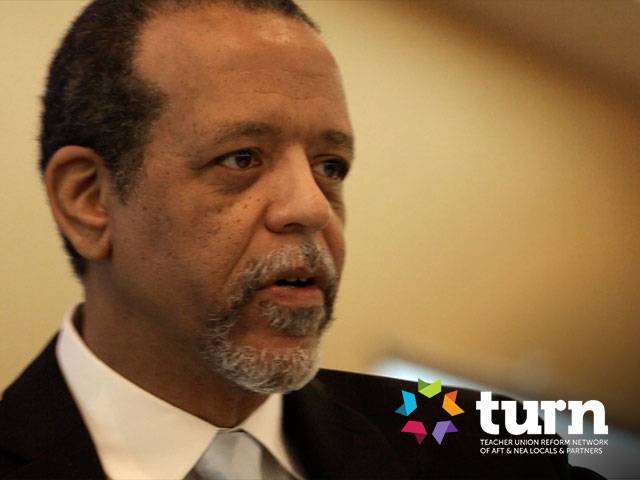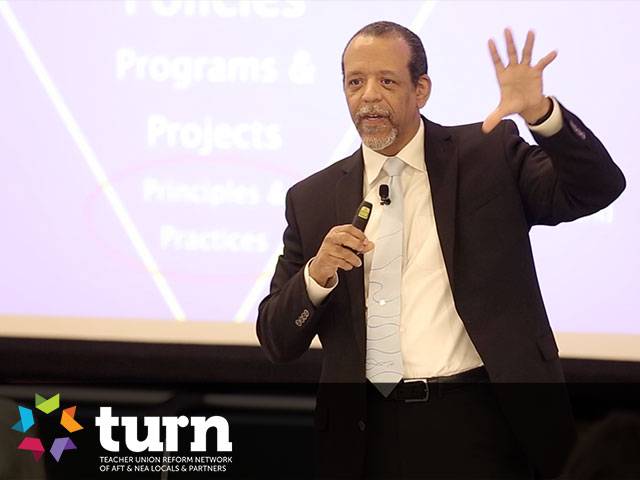Video 7 Author and Harvard professor Ron Ferguson shares information about the home/school connection and its importance in the success of students. He discusses a project titled “Seeding Success Zero-to-Three†and shares one outcome of the project called the fundamental five early childhood care giving practices. Those include: maximize love, minimize stress; talk, sing and point; count, group and compare; explore through movement; read and discuss stories. The project is now titled the “Boston Basics."
Video Transcript
[00:00:09] With schools we often talk about the home school linkages and the family engagement pieces. Lots of creative things are going on with home school linkages. A fair amount of home visitation is going on now. Initially home visitation was mostly in early childhood. David Olds home visiting program got a lot of attention. Now there are lots of schools where school age kids are getting home visits. It might not always be at home. It might be at the Dunkin Donuts at the corner. One way or another, outside of school parents are sitting down sometimes with two teachers who go out as a team to start building that bond with the family. [00:00:49] With the parenting piece there are a few different basic ideas we want to get in the picture. As I mentioned, there's evidence that gaps are in place by age two. They are not very much in evidence at age one. It looks like folks from different backgrounds are born not that much different, at least in any way you can measure. Age one, there are some small differences but not much. By age two the differences are stark. We think it's got to do with early childhood lived experiences. A theme for the whole talk we're having is we want to shape kids' lived experiences from cradle to career. We want their lived experiences to be optimally developmental to prepare them to thrive. [00:01:37] We have the project we call Seeding Success operating out of the Achievement Gap Initiative. We held another two day conference, pulled together researchers from around the country who do child development and so on, and asked them what do you know that the world needs to know about raising kids. We distilled from that what we call the fundamental five early childhood caregiving practices. These are ideas that we need to get out not only to parents but to people who influence parents. Mothers get most of their advice when they're new mothers from their mothers and their mothers in law. We need to reach grandma. We need to be sure grandma has access to the most up to date high quality ideas of what caregiving should look like for infants and toddlers. [00:02:24] We have a little booklet that we're almost done with, one is for toddlers and one is for infants, that are built around these fundamental thoughts. Maximize love minimize stress is number one. We want people to know the various ways to express love to an infant or toddler, the various ways to help an infant or toddler feel loved and secure. It's not that parents don't have a lot of these things, they already do some of them, but be more conscious about it and do more of it on purpose. [00:02:51] What stress looks like. A baby lying wet and hungry for a while is just stressful. There's something called toxic stress. It's a brain chemical that can undermine brain development even, if it gets too bad. Minimizing stress also contributes to the development of executive function skills that I was talking about a while ago. Being in a household where people are angry and arguing a lot can be stressful to an infant or a toddler. Raising people's consciousness about the need to shield the toddler and infant from that. [00:03:28] Some people say, "Well, if people are totally stressed out and they're in poverty and they've got all these kinds of things that they can't manage, you can't expect them to pay attention to stuff like this. They're overwhelmed." My answer is let them decide. At least give them access. Let them decide if they're so overwhelmed they can't use it. [00:03:53] Sometimes they might be, which means they need more support. We need to mobilize community resources to supply the resources and the supports that families who are overwhelmed need. I grew up in neighborhoods where people didn't have a whole lot of resources but they weren't so overwhelmed they couldn't use a little advice on what to do with their infants and toddlers. [00:04:17] Then Talk, Sing and Point. Really interesting research on gesturing. How establishing eye contact with an infant and pointing to what you're talking about accelerates comprehension. Gesturing is the language they use but it's basically just pointing. Research out of the University of Chicago. [00:04:37] Talk, Sing, and Point. Babies are encoding language prenatal. They come out of the womb already having gotten tuned in a bit. There's a TED talk that compares the cry, the whimper, of German versus French babies. One has a whimper that ends in a little up tick, and the other has a whimper that ends in a little down tick. Babies come out of the womb preferring the taste of the foods that their mothers ate during pregnancy. We can think of babies as visitors in a foreign country. They're trying to decode the language. You come into the world, yu're hearing these sounds, and you don't quite know what they mean. They're coming in and out. If people are talking gibberish in baby talk, that doesn't help. The idea is you want to talk real talk from the beginning, maybe some baby talk, but they're encoding those sounds. They like high pitch kind of sing songy, but you can do high pitch sing songy with real words. It doesn't have to be nonsense. [00:05:46] Also, a lot of people for whom English is a second language, they're afraid to talk to their babies. They're afraid that talking Spanish or Creole to an infant will interfere with their learning English. We need to get the word with them that it will not and that you need to speak to the infant a lot no matter what your home language is, because there are basic patterns in human language that they're picking up that will facilitate their language acquisition. The things like that we just need to get the word out to parents. [00:06:22] Then we have group, count, and compare. It's a major intellectual breakthrough for a toddler to realize that numbers correspond to groups of things. It's two of something. It's three of something. There are little games that you can play that will help accelerate that intuition. Once they have that intuition the world makes more sense. [00:06:40] The third, explore through movement. Develop the mind's eye. Imagine a 15 month old crawling around an apartment mentally mapping the apartment, remembering where she left her toy on the other side of the furniture that she can't see right now. The brain architecture that helps to do that mental mapping will later be useful for mathematics, athletics, and even handwriting. That involves visual motor integration. [00:07:08] Finally, don't just read. Read and discuss. As soon as the child can give you some feedback, have a discussion. Remember, explain and anticipate. It could be mnemonic. [00:07:21] We're gearing up to saturate communities with these five things. Ministers giving sermons. Pediatricians doing well baby visits. Pamphlets on the counter at the grocery store. Posters on the wall at the laundromat. Employers putting together clubs in the sites where people who have new babies. Every new mother in a community before she's delivered getting some material, having some things to talk about, getting connected to 10 other new mothers in a community who can stay in touch with one another and talk about what they're doing and bounce off of the fundamental five. The foundations of agency really early on. [00:07:59] Stop the gaps from opening before they start to the degree we can, because we do have evidence that across race and socioeconomic lines kids lived experiences from birth are different in these dimensions. If we go at it respectfully, families are thankful. They thank you for telling them this stuff.









